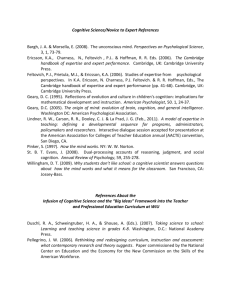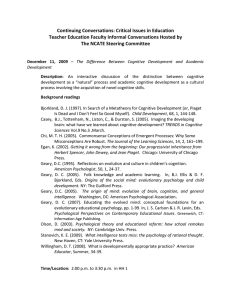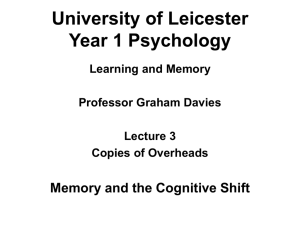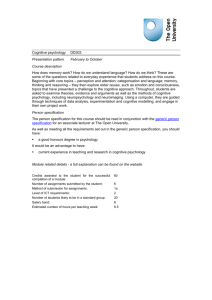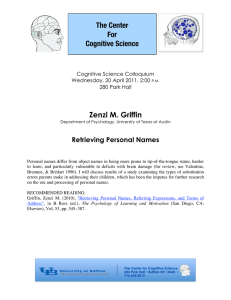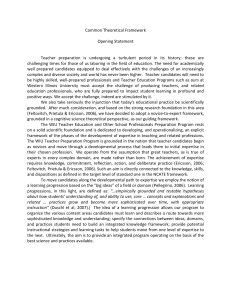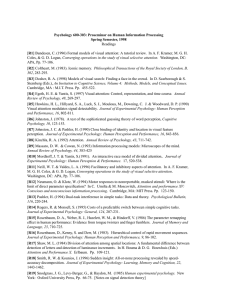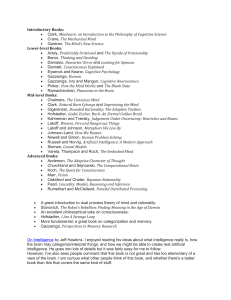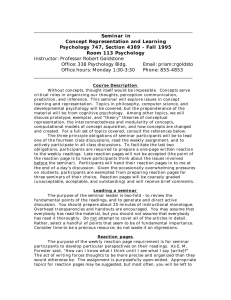Continuing Conversations: Critical Issues in Education
advertisement
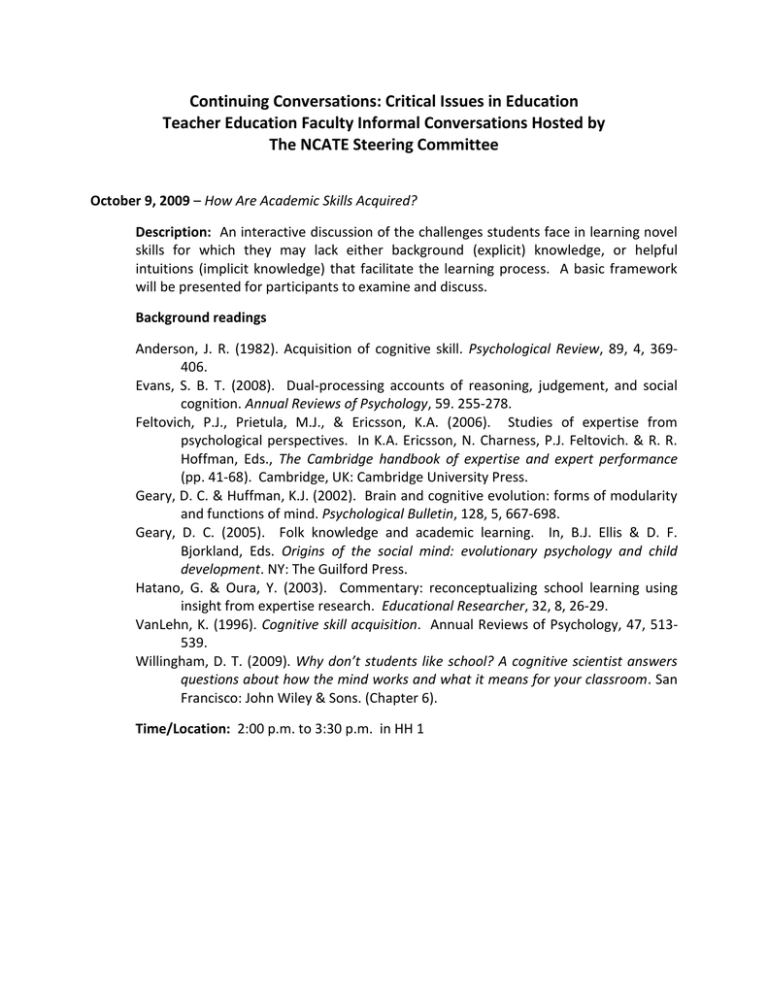
Continuing Conversations: Critical Issues in Education Teacher Education Faculty Informal Conversations Hosted by The NCATE Steering Committee October 9, 2009 – How Are Academic Skills Acquired? Description: An interactive discussion of the challenges students face in learning novel skills for which they may lack either background (explicit) knowledge, or helpful intuitions (implicit knowledge) that facilitate the learning process. A basic framework will be presented for participants to examine and discuss. Background readings Anderson, J. R. (1982). Acquisition of cognitive skill. Psychological Review, 89, 4, 369406. Evans, S. B. T. (2008). Dual-processing accounts of reasoning, judgement, and social cognition. Annual Reviews of Psychology, 59. 255-278. Feltovich, P.J., Prietula, M.J., & Ericsson, K.A. (2006). Studies of expertise from psychological perspectives. In K.A. Ericsson, N. Charness, P.J. Feltovich. & R. R. Hoffman, Eds., The Cambridge handbook of expertise and expert performance (pp. 41-68). Cambridge, UK: Cambridge University Press. Geary, D. C. & Huffman, K.J. (2002). Brain and cognitive evolution: forms of modularity and functions of mind. Psychological Bulletin, 128, 5, 667-698. Geary, D. C. (2005). Folk knowledge and academic learning. In, B.J. Ellis & D. F. Bjorkland, Eds. Origins of the social mind: evolutionary psychology and child development. NY: The Guilford Press. Hatano, G. & Oura, Y. (2003). Commentary: reconceptualizing school learning using insight from expertise research. Educational Researcher, 32, 8, 26-29. VanLehn, K. (1996). Cognitive skill acquisition. Annual Reviews of Psychology, 47, 513539. Willingham, D. T. (2009). Why don’t students like school? A cognitive scientist answers questions about how the mind works and what it means for your classroom. San Francisco: John Wiley & Sons. (Chapter 6). Time/Location: 2:00 p.m. to 3:30 p.m. in HH 1
